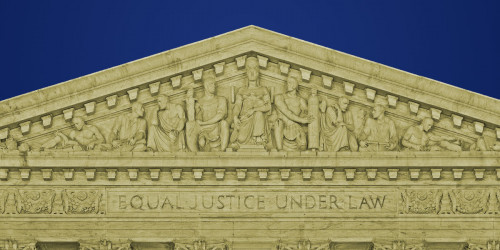Utah cannot stifle young people’s First Amendment rights to use social media to speak about politics, create art, discuss religion, or to hear from other users discussing those topics, EFF argued in a brief filed this week.
EFF filed the brief in NetChoice v. Brown, a constitutional challenge to the Utah Minor Protection in Social Media Act. The law prohibits young people from speaking to anyone on social media outside of the users with whom they are connected or those users’ connections. It also requires social media services to make young people’s accounts invisible to anyone outside of that same subgroup of users. The law requires parents to consent before minors can change those default restrictions.
To implement these restrictions, the law requires a social media service to verify every user’s age so that it knows whether to apply those speech-restricting settings.
The law therefore burdens the First Amendment rights of both young people and adults, the friend-of-the-court brief argued. The ACLU, Freedom to Read Foundation, LGBT Technology Institute, TechFreedom, and Woodhull Freedom Foundation joined EFF on the brief.
Utah, like many states across the country, has sought to significantly restrict young people’s ability to use social media. But “Minors enjoy the same First Amendment right as adults to access and engage in protected speech on social media,” the brief argues. As the brief details, minors use social media for to express political opinions, create art, practice religion, and find community.
Utah cannot impose such a severe restriction on minors’ ability to speak and to hear from others on social media without violating the First Amendment. “Utah has effectively blocked minors from being able to speak to their communities and the larger world, frustrating the full exercise of their First Amendment rights,” the brief argues.
Moreover, the law “also violates the First Amendment rights of all social media users—minors and adults alike—because it requires every user to prove their age, and compromise their anonymity and privacy, before using social media.”
Requiring internet users to provide their ID or other proof of their age could block people from accessing lawful speech if they don’t have the right form of ID, the brief argues. And requiring users to identify themselves infringes on people’s right to be anonymous online. That may deter people from joining certain social media services or speaking on certain topics, as people often rely on anonymity to avoid retaliation for their speech.
Finally, requiring users to provide sensitive personal information increases their risk of future privacy and security invasions, the brief argues.












